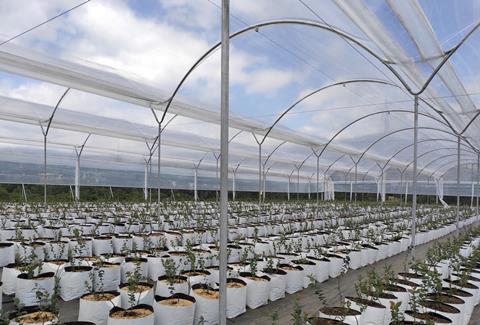Industry seeking to secure phytosanitary protocol with Chinese government

Blueberry growers and exporters in Ecuador have submitted a formal application to start the process of securing a phytosanitary protocol with China that would allow this fruit to be exported to that market under a 0 per cent tariff.As reported in Primicias, Sebastián Muñoz, general coordinator of the Ecuadorean Federation of Blueberry Producers and Exporters (Fepexa) said blueberries are one of the priority products in the government’s trade talks with China.
The development and approval of the protocol can take between two and five years, Muñoz said, adding that under the Free Trade Agreement between Ecuador and China which came into force in May 2024, the deadlines could be reduced.
The first blueberries were planted in Ecuador in 2015, with trial exports getting under way in 2021. Today there are 300ha of production and the fruit is shipped to the US, the Europe and Hong Kong.
Total exports reached 220 tonnes in 2022, but this fell to 112 tonnes last year due to the severe drought which hit the main production areas.
Promoting the expansion of Ecuador’s productive base was the main theme of the second edition of the International Blueberry Congress, which took place in Quito last week. Experts from Mexico, Chile and Ecuador discussed exports, agronomic management, nutrition, disease management and other topics.
Although Ecuador’s blueberry industry is dwarfed by that of other regional players like Peru, Colombia and Chile, the country has a number of competitive advantages, among them the ability to grown large, sweet blueberries year-round and having international certifications for organic production.
Muñoz said Ecuador is seeking to differentiate itself on the international market by the quality of its fruit.



